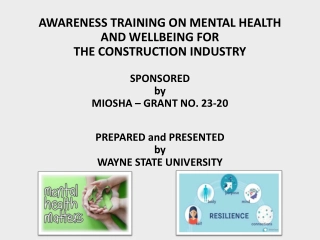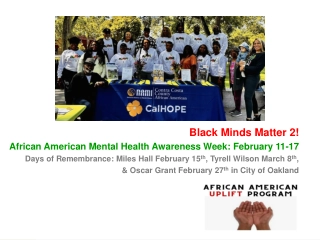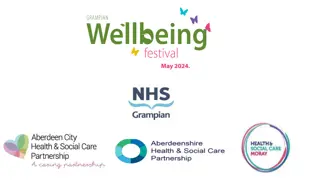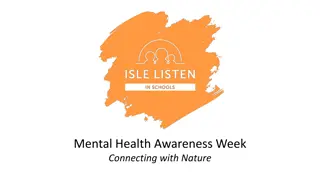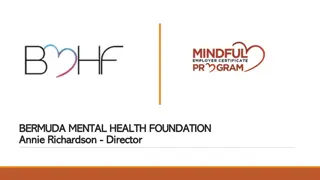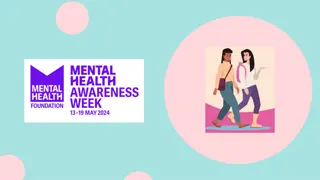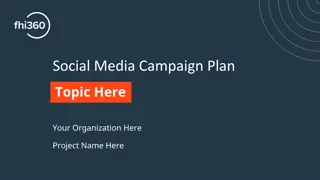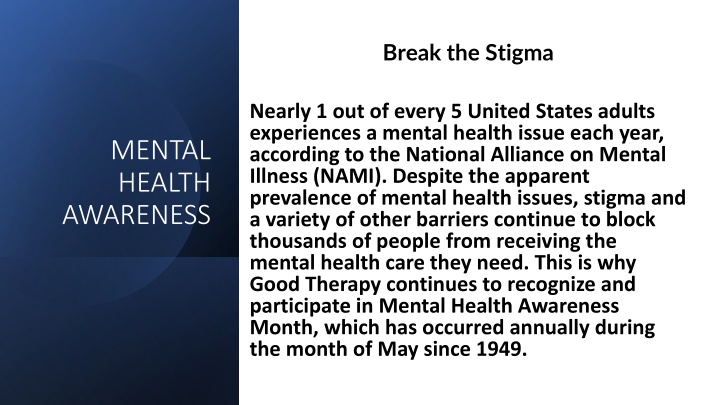
Mental Health Awareness and Wellbeing Tips
Break the stigma surrounding mental health issues in the United States and learn how to maintain wellbeing during challenging times. Discover the importance of mental health awareness, get practical tips for self-care, and find resources for support. Join the movement to prioritize mental health care for all individuals.
Download Presentation

Please find below an Image/Link to download the presentation.
The content on the website is provided AS IS for your information and personal use only. It may not be sold, licensed, or shared on other websites without obtaining consent from the author. If you encounter any issues during the download, it is possible that the publisher has removed the file from their server.
You are allowed to download the files provided on this website for personal or commercial use, subject to the condition that they are used lawfully. All files are the property of their respective owners.
The content on the website is provided AS IS for your information and personal use only. It may not be sold, licensed, or shared on other websites without obtaining consent from the author.
E N D
Presentation Transcript
Break the Stigma Nearly 1 out of every 5 United States adults experiences a mental health issue each year, according to the National Alliance on Mental Illness (NAMI). Despite the apparent prevalence of mental health issues, stigma and a variety of other barriers continue to block thousands of people from receiving the mental health care they need. This is why Good Therapy continues to recognize and participate in Mental Health Awareness Month, which has occurred annually during the month of May since 1949. MENTAL HEALTH AWARENESS
TIPS TO MAINTAIN WELLBEING Go for a walk Sometimes all you need is a change of scenery to help change your mood especially if you ve been in the confines of your home for too long. Just because we re practicing social distancing doesn t mean you can t go outside and enjoy some fresh air. The key is to do it safely, and to stay at least six feet away from others while you re on your walk. Keep a schedule The key to managing stress (and staying productive) is keeping your regular schedule. Set an alarm clock, eat breakfast, take a shower and get dressed (at least from the top up if you re going to be on Zoom meetings) as if you were actually going into work. You don t have to put on a suit or tie, but you ll need to treat the day like any other day at the office, minus the office. Habits are built and kept with routine, says Dr. A. If you can t leave your home, establish a daily schedule for when you wake up, when you sleep and everything in between. This discipline and consistency will help to keep you on track.
TIPS TO MAINTAIN WELLBEING Get some rest No one says you need to learn a new hobby, cook everyday, or keep up with what people are doing on social media. You are living through a global pandemic, and your body needs rest just as much as your mind. Give yourself some grace by staying hydrated and getting an approach amount of sleep it will do wonders with helping you de-stress. Stay connected Dr. A encourages everyone to communicate with friends and family as often as possible. If you find yourself reverting to old habits or turning to unhealthy coping mechanisms, the best line of defense is a supportive network of people who can offer advice, encouragement or just a listening ear, he says.
Crisis Text Line: http://www.crisistextline.org/ A free and confidential 24/7 support line for those in crisis in the U.S. A live, trained crisis counselor will answer your text within minutes The Loveland Foundation: https://thelovelandfoundation.org/ The Loveland Foundation raises money to provide financial assistance to black women and girls nationally who are seeking therapy. Their goal is to help members of diverse racial and ethnic groups overcome barriers affecting access to treatment. NAMI: National Alliance on Mental Illness NAMI focuses on mental health and wellbeing for all people: https://www.nami.org/home Specifically, their program Sharing Hope is focusing on the lack of information about mental health in black communities, and how it prevents them from getting the support they need: https://www.nami.org/Support- Education/Mental-Health-Education/NAMI-Sharing- Hope-Mental-Wellness-in-the-Black-Community It is a 3-part video series that explores the journey for mental wellness in black communities Resources For the Community

